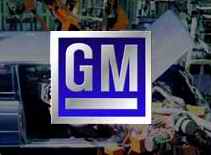The Russian Gas monopoly Gazprom intends to take action in order to force The Ukraine to pay for gas and stop the country from exporting it to Europe.
Published:
7 July 2000 y., Friday
Russian deputy Prime Minister Viktor Khristenko has reported that gas deals between the two CIS members are to be radically revised and a new payment procedure is to be introduced soon. By October 1st this year, the Russian government will have prepared a set of documents regulating gas transactions between the two states. Judging from the published excerpts from those documents, Russia will no longer tolerate The Ukraine’s non-payment and gas theft.
Firstly, to stop gas deliveries through The Ukraine would mean loosing lucrative contracts with Germany. Secondly, Kiev has cunningly managed to use Gazprom’s and the Russian authorities’ interests to suit its own ends, by promising the Kremlin that The Ukraine could delay its bid to enter NATO. The Russian authorities willingly bought these promises.
Politics aside, there were also economic reasons for Russia’s lenience towards The Ukraine. Gazprom has always acted as a private legal entity, although the Russian government holds a 41% stake in the gas giant. However, Gazprom continuously delayed tax payments, omitted dividends, and state representatives were given a disproportionately low share of the seats on Gazprom’s board of directors.
The government therefore did not take great pains to defend Gazprom’s interests.
Russia also insists that The Ukraine should stop illicit gas deliveries to Europe. The problem is that The Ukraine purchases Russian gas on favorable terms, regularly delays payments to Gazprom and then resells gas at high European prices, thus disrupting the stability of European gas supplies.
Šaltinis:
Internet
Copying, publishing, announcing any information from the News.lt portal without written permission of News.lt editorial office is prohibited.
The most popular articles
 On 30th April this year, AB Bank SNORAS business loan portfolio, in comparison to 31st December 2008, i.e. during the first four months of this year, grew by 74 million Litas or 3.8 per cent, while the business loan portfolio of the most banks operating in Lithuania was decreasing.
more »
On 30th April this year, AB Bank SNORAS business loan portfolio, in comparison to 31st December 2008, i.e. during the first four months of this year, grew by 74 million Litas or 3.8 per cent, while the business loan portfolio of the most banks operating in Lithuania was decreasing.
more »
 London's financial district, Canary Wharf is transformed into a giant car showroom. Dozens of manufacturers and dealers have flocked to this part of the city to show off their latest models.
more »
London's financial district, Canary Wharf is transformed into a giant car showroom. Dozens of manufacturers and dealers have flocked to this part of the city to show off their latest models.
more »
 In the latest edition of its 2009 survey, "ATMs and Cash Dispensers Central and Eastern Europe," Retail Banking Research Ltd. says the 15 countries it has tracked in CEE have once again shown exceptional growth.
more »
In the latest edition of its 2009 survey, "ATMs and Cash Dispensers Central and Eastern Europe," Retail Banking Research Ltd. says the 15 countries it has tracked in CEE have once again shown exceptional growth.
more »
 During the draw another five winners of the Danske Bankas monthly Scholarship award (a one off payment to the amount of 250 litas) were announced.
more »
During the draw another five winners of the Danske Bankas monthly Scholarship award (a one off payment to the amount of 250 litas) were announced.
more »
 The European Commission has authorised, under the EC Treaty’s rules on state aid, plans notified by Sweden to provide guarantees that would enable Volvo Personvagnar to access loans from the European Investment Bank.
more »
The European Commission has authorised, under the EC Treaty’s rules on state aid, plans notified by Sweden to provide guarantees that would enable Volvo Personvagnar to access loans from the European Investment Bank.
more »
 The European Union signed an interim Economic Partnership Agreement (EPA) today with Botswana, Lesotho and Swaziland.
more »
The European Union signed an interim Economic Partnership Agreement (EPA) today with Botswana, Lesotho and Swaziland.
more »
 Commission proposes to immediately free up €19bn in earmarked funds to fight unemployment as recession takes its toll.
more »
Commission proposes to immediately free up €19bn in earmarked funds to fight unemployment as recession takes its toll.
more »
 Danske Bankas would like to inform all present and future customers that, as of 1 July 2009, the cash withdrawing fee from Danske Bankas' ATM network in Lithuania is to change.
more »
Danske Bankas would like to inform all present and future customers that, as of 1 July 2009, the cash withdrawing fee from Danske Bankas' ATM network in Lithuania is to change.
more »
 One day not so far in the future, Europeans may be able to buy a loaf of bread knowing where the flour came from.
more »
One day not so far in the future, Europeans may be able to buy a loaf of bread knowing where the flour came from.
more »
 General Motors is getting closer to filing what would be the largest industrial bankruptcy in US history.
more »
General Motors is getting closer to filing what would be the largest industrial bankruptcy in US history.
more »